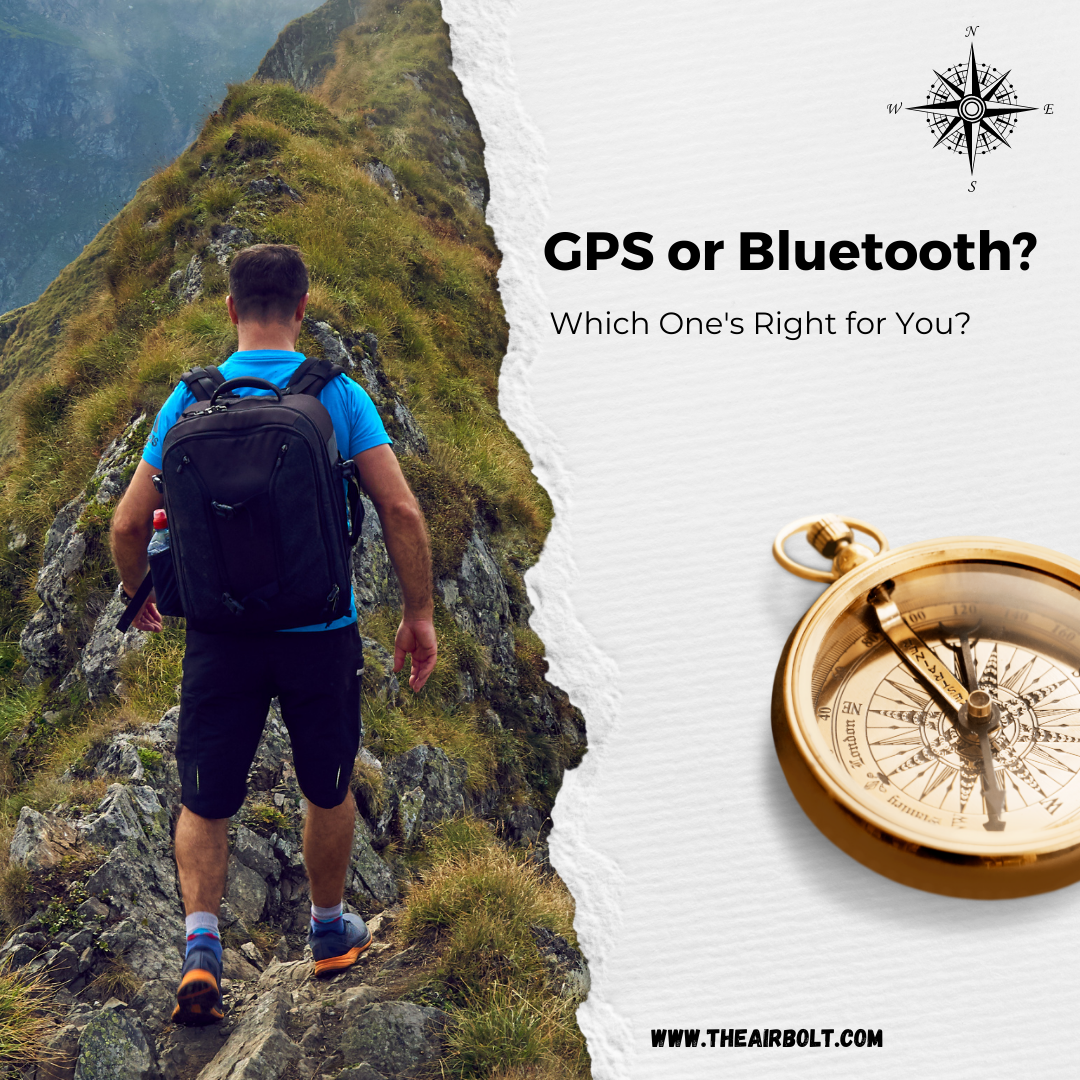
GPS vs. Bluetooth Tracking: Which One's Right for You?
GPS vs. Bluetooth Tracking: Which One's Right for You?
Hello, AirBolt enthusiasts! When it comes to keeping tabs on our belongings, two of the most popular technologies are GPS and Bluetooth tracking. Both offer unique benefits, but which one's right for your needs? Let's dive deep into the world of tracking, and compare GPS to Bluetooth, while also highlighting AirBolt's stellar products for both.
GPS Tracking
How does it work?
GPS, or Global Positioning System, uses a network of satellites that orbit the Earth. These satellites send signals to a GPS receiver, which then calculates its exact location based on the time it took for the messages to arrive. Then, it can relay this info to a device or platform where you can see the item's real-time location.
Tracking Range
The GPS has a virtually limitless tracking range as it operates on a global scale. As long as the device can connect to the satellite signal (and there's some form of network to transmit this data to you), you can track it, whether it's in the next room or another continent.
Practical Examples
- Travel: If you've packed an AirBolt GPS tracker in your suitcase, and it ends up lost or gets rerouted to another city, you can pinpoint its exact location anywhere in the world.
- Vehicles: Businesses often use GPS trackers to monitor company vehicles, ensuring they're being used efficiently and responsibly.
- Outdoor Adventures: Hikers and mountaineers can use GPS trackers to keep tabs on their location, ensuring safety.
Bluetooth Tracking
How does it work?
Bluetooth tracking operates using the Bluetooth technology we often find in our phones and speakers. A Bluetooth tracker emits a signal that can be picked up by devices within its range, usually smartphones with the corresponding app.
Tracking Range
The range for Bluetooth tracking is considerably shorter than GPS. Most Bluetooth trackers work within a range of 20 to 200 meters (65 to 650 feet) depending on the environment. Factors like walls and other obstructions can reduce this range.
Practical Examples
- Everyday Items: If you tend to misplace your keys around the house, attaching an AirBolt Bluetooth tracker can help you find them quickly. Your smartphone will connect to the tracker and lead you to the lost item.
- Luggage: At an airport carousel, instead of waiting anxiously, you can get a notification on your phone as soon as your Bluetooth-enabled luggage is within range.
- Wallets and Purses: In crowded places, if you're not sure where you placed your wallet or if you suspect it might have been taken, the tracker can help determine its proximity.
AirBolt's Offerings
At AirBolt, we understand the importance of keeping your belongings safe and within reach. That's why we offer both GPS and Bluetooth trackers.
-
AirBolt GPS Tracker: Ideal for long-range tracking and when you want to keep an eye on items across vast distances. It’s perfect for international travel or tracking assets like vehicles.

-
AirBolt Bluetooth Tracker: Best for short-range tracking. It's your daily companion for items like keys, wallets, or bags. Given its smaller tracking radius, it's optimal for ensuring you don't leave behind or misplace items in familiar settings like your home or office.

Conclusion
While both GPS and Bluetooth tracking have their unique strengths, the choice between them depends on the specific use-case. If you're looking for global, real-time tracking, GPS is the way to go. For more localized tracking, Bluetooth offers a handy solution. And with AirBolt's range of tracking solutions, you're always just a tap away from peace of mind.
Happy Tracking! 📍🌍🔍